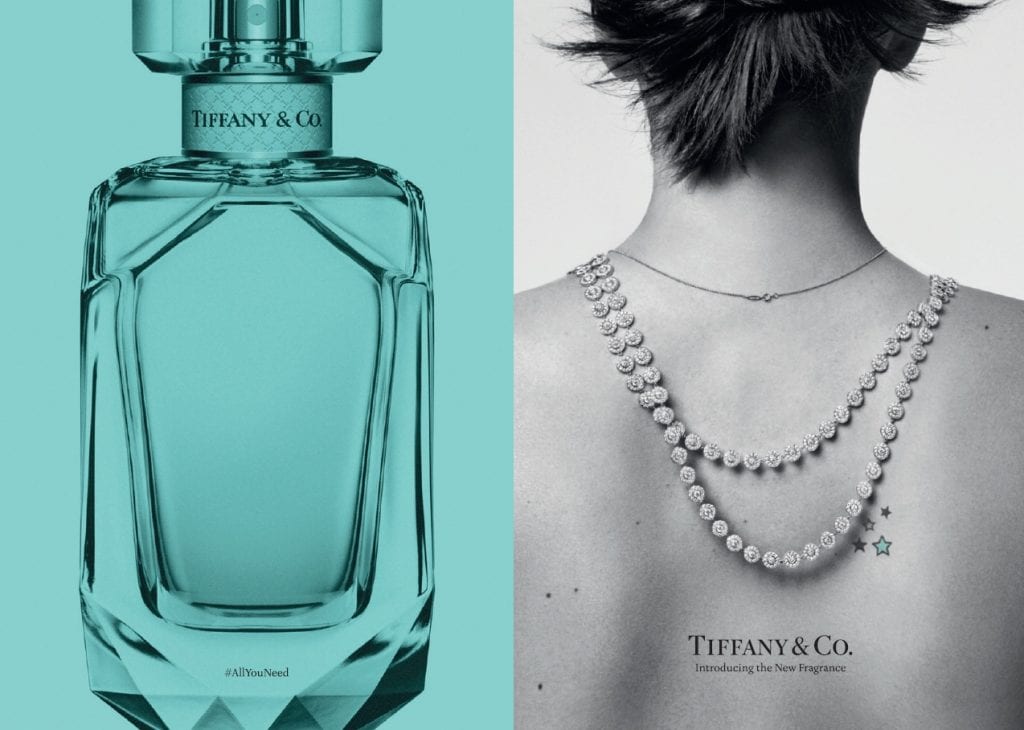On November 24, 2019, the powers that be at LVMH Moët Hennessy-Louis Vuitton and Tiffany & Co. respectively signed off on what has been touted as the largest deal to date in the luxury space. The agreement would see Paris-based LVMH, which was a title of its own: the largest luxury goods conglomerate in the world, acquire Tiffany & Co. for a whopping $16.2 billion – or $135 per Tiffany & Co. share – in cash. As New York-headquartered Tiffany & Co. tells it, the deal followed from an initial, unsolicited bid from LVMH, which it subsequently increased five separate times (three of which played out in a single day) in an effort to bring the stalwart jewelry company under its sweeping umbrella of luxury entities.
After months of increasingly-intense speculation among the fashion and business media, the respective Boards at LVMH and Tiffany & Co. put pen to paper and finalized the deal on a Sunday in late November. The highly-anticipated deal would formally close in mid-2020, according to a release from LVMH, subject, of course, to approval from Tiffany’s shareholders and various regulatory bodies across the globe.
With the merger agreement signed, LVMH praised the impending acquisition as one that would “strengthen LVMH’s position in jewelry and further increase its presence in the United States.” Moreover, it would serve to “transform LVMH’s Watches & Jewelry division and complement LVMH’s seventy-five distinguished Houses,” which range from Dior to Dom Pérignon. Meanwhile, chairman and CEO Bernard Arnault, 71, said, “We will be proud to have Tiffany sit alongside our iconic brands.”
What appeared to be “a really good match” between two well-established names in luxury, as Raphael Pitoun, portfolio manager at CQS New City Equity, characterized the merger in an interview with CNBC in November, would swiftly become a story of something else: one of alleged renegotiation attempts, Board-level mismanagement, COVID complications, calculated delays, “buyer’s remorse,” and ultimately, what appeared to be a deal-gone-wrong.
In light of the lawsuit that Tiffany & Co. filed against LVMH in a Delaware court, accusing the French titan of reneging on their deal, and LVMH’s subsequent vow to “vigorously” defend itself against Tiffany’s “defamatory” allegations, here is a chronological look at how such a seemingly spectacular deal ended up at the center of an ugly-and-escalating legal battle …
November 24, 2019 – The boards of both LVMH and Tiffany approved the headline-making deal by which LVMH would acquire all shares in Tiffany & Co. for a total of $16.2 billion, “subject to the receipt of regulatory approvals and satisfaction or waiver of other customary closing conditions.”
January 3, 2020 – Tiffany & Co. shareholder John Thompson filed suit against the company and its board for allegedly submitting a proxy statement to the U.S. Securities and Exchange Commission on December 18 that is “false and misleading” as a result of its failure to include “material information with respect to the proposed transaction.” (Counsel for Thompson filed a notice of voluntary dismissal with the court on February 12 (potentially as a result of a settlement between the parties), and on February 13, the court formally closed the case).
February 4, 2020 – Tiffany & Co. shareholders “voted overwhelmingly to approve” the merger agreement at a special meeting of Tiffany stockholders, according to a joint release from Tiffany and LVMH.
March 19, 2020 – According to a report from Bloomberg, LVMH is “considering buying Tiffany & Co. stock for less on the open market amid a coronavirus-driven slump” from the $135/share price the parties agreed on. “The unusual step could allow the Paris-based group to capture a near 13 percent discount at recent prices.”
LVMH denied the report, stating, “Rumors circulated recently indicating that LVMH would consider buying Tiffany shares on the open market. These rumors lead LVMH to recall that, in accordance with the agreement concluded with Tiffany in November 2019, LVMH is currently committed not to buy Tiffany shares.”
March 20, 2020 – Tiffany & Co. releases its fourth quarter and full year results, forecasting what Reuters described as “a significant results hit this year as it temporarily shut stores and had lost about half of its operating days in mainland China since the coronavirus outbreak.”
June 2, 2020 – According to media reports the deal is on “uncertain” terms, with LVMH Board members meeting to discuss “concerns about the Covid-19 pandemic,” as well as “worries over Tiffany’s ability to cover its debt covenants at the end of the transaction.”
June 5, 2020 – “LVMH CEO Bernard Arnault has been in talks with his advisers this week to identify ways to pressure Tiffany to lower the agreed price of $135 per share in cash,” Reuters reports. “He considered whether he could argue that the New York-based company is in breach of its obligations under the merger agreement.”
June 9, 2020 – Tiffany & Co. reported an approximate 44 percent drop in sales for the first quarter on 2020 due to COVID store closures, with CEO Alessandro Bogliolo, nonetheless, asserting that sales in China are “indicative that a robust recovery is underway.” At the same time, Bogliolo revealed that it had gotten the necessary antitrust approvals for the merger from regulators in Russia and Mexico, with those from other key entities still pending. (South Korea’s Fair Trade Commission would give its okay on June 12, and Australia’s regulator would follow in July).
June 30, 2020 – At LVMH’s General Meeting in Paris, LVMH Group Managing Director Antonio Belloni speaks to the deal, saying, “We believe that Tiffany is one of the most iconic jewelry brands. As such, it fully has its place in the LVMH portfolio.”
July 28, 2020 – In an interview with French publication Le Figaro, LVMH CFO Jean-Jacques Guiony said, “Tiffany’s [financial] results are clearly affected by the crisis. That said, we have signed a contract and we will respect it.” He also noted that while LVMH was still waiting for about half a dozen antitrust approvals for the Tiffany deal, “Things are moving forward.”
August 24, 2020 – Slated to close the deal by August 24 in accordance with the terms of their merger agreement, Tiffany and LVMH “will give themselves another three months to complete their tie-up,” per Reuters. Tiffany is “exercising the option to apply November 24 as the ultimate deadline,” the publication stated, noting that the parties “have yet to receive [all of] the regulatory approvals [that the deal] requires, in particular from the European Union.”
According to an SEC filing by Tiffany, “The Merger Agreement gives either party the option to unilaterally extend the outside date to November 24, 2020 if antitrust clearances are the only remaining condition to closing at August 24, 2020.”
August 27, 2020 – Tiffany reports “stronger-than-expected” profit numbers for the second quarter. CEO Alessandro Bogliolo pointed to “encouraging trends we cited for the first quarter, namely, increased sales in Mainland China and global e-commerce, accelerated during the second quarter and propelled our return to quarterly profitability.”
In the same release, Tiffany states, “LVMH has notified [Tiffany] that it reserves the right to challenge the validity of the extension of the [August 24 closing date] under the Merger Agreement. The Merger remains subject to regulatory clearance by the European Commission, the Japan Fair Trade Commission, the Mexican competition authority (Comisión Federal de Competencia Económica) and the Taiwan Fair Trade Commission, and the satisfaction or waiver of other customary closing conditions.”
August 31, 2020 – LVMH receives a letter from the French Minister of Foreign Affairs requesting that it delay the deal until after January 6, 2021 “in order to support the steps taken vis-a-vis the American government,” namely, the “the American government’s [decision] to implement an additional customs duty on the import of certain French goods, in particular goods in the luxury sector, in reaction to France adopting a digital services tax.”
September 8, 2020 – During a phone call with LVMH Managing Director Antonio Belloni, Tiffany Chairman Roger Farah learns of the letter from the French foreign ministry to LVMH. Per Reuters, Belloni revealed that “Arnault had met with the French government to discuss the letter and tells Farah the LVMH board believed Tiffany had not operated its business in accordance with the merger agreement.
September 9, 2020 – LVMH revealed that it will back out of the Tiffany merger, citing a letter from the French Foreign Affairs Minister, requesting that LVMH delay the deal until at least January 6, 2021 in light of tariffs that the Trump Administration threatened to impose on French goods.
On that same day, Tiffany & Co. files a lawsuit in the Court of Chancery of the State of Delaware against LVMH in connection with which it is seeking a court order requiring LVMH to “abide by its contractual obligation under the merger agreement to complete the transaction on the agreed terms.”
September 10, 2020 – In response to Tiffany & Co.’s lawsuit, LVMH has stated in a release that it is “surprised by the lawsuit filed [against it] by Tiffany,” an action that it says is “totally unfounded” and “demonstrates the dishonesty of Tiffany in its relations with LVMH.” The group said it is prepared to “vigorously” defend itself a legal initiative that is “clearly prepared by Tiffany a long time ago and communicated in a misleading way to shareholders and is defamatory,”
September 16, 2020 – After lodging its complaint, Tiffany & Co. filed a motion to expedite proceedings, a relatively common move when a deal deadline is in play, as it is here. (As a result of the August 24 pushback, the merger is slated to close on November 24).
September 17, 2020 – In a release, LVMH says that it responded to Tiffany’s filing with an opposition motion on the same day, stating, “There is no objective reason why the upcoming trial should not take place within a normal time frame,” and that “it is up to the Delaware court to determine who is in his right, and not the chairman of Tiffany through the press.”
September 18, 2020 – LVMH says that it has made good on its obligation to seek regulatory approval in the European Union. In a statement, the group “confirms that earlier today, immediately after receiving approval to proceed by the European Commission, [LVMH] has submitted the proposed acquisition of Tiffany for antitrust review, as it has always stated it would do,” noting that “eight of the ten requisite antitrust clearances have already been obtained.” LVMH reiterated that it expects to get the remaining approvals from regulators in EU and Taiwan “well before” the new November 24 closing deadline.
In its recently-filed suit, Tiffany & Co. accused LVMH of delaying this critical filing, and responded to LVMH’s confirmation, saying, “The speed with which LVMH acted after Tiffany filed its complaint in Delaware only underscores LVMH’s delays and lack of compliance with the merger agreement over the prior months.”
September 21, 2020 – In an order issued on Monday, Delaware Chancery Court Vice Chancellor Joseph Slights denied Tiffany & Co.’s initial bid for the case to be heard before the newly-extended November 24 deadline, but agreed to fast-track the case to an extent, setting a January 5, 2021 date for the luxury goods purveyors’ four-day trial.
October 14, 2020 – The European Commission, which is scheduled to issue its decision on whether the LVMH, Tiffany deal runs afoul of antitrust regulations by October 26, is “set” to give the merger the green-light, according to sources close to the matter, as reported by Reuters.
October 26, 2020 – Tiffany & Co. and LVMH Moët Hennessy Louis Vuitton have received all of the necessary regulatory approvals in order to move ahead with their $16.2 billion merger, as the European Commission has given the deal the green light. “All regulatory approvals required for the completion of the merger have now been obtained,” New York-headquartered Tiffany & Co. stated in a filing with the Securities and Exchange Commission.
October 27, 2020 – According to reports from CNBC and Reuters, LVMH and Tiffany are negotiating new terms for the deal. Per Reuters, that new deal could see LVMH pay between $131-$134 for each Tiffany share, compared to the $135/share price they initially signed off on in November 2019. CNBC reports that “under the revised terms, LVMH would acquire Tiffany for $130 to $133 per share,” but notes that “the talks remain fluid.”
October 28, 2020 – Reuters reports that Tiffany and LVMH have “agreed to lower the price of the $16 billion takeover to $131.5 per share from $135 per share, and that an announcement that the deal is therefore back on track could come on October 29.” The potential new deal, which would likely require additional approval from Tiffany’s board, “would mean a discount of $425 million for LVMH, led by billionaire businessman Bernard Arnault, or less than 3 percent of the initial deal price.”
October 29, 2020 – LVMH Moët Hennessy Louis Vuitton and Tiffany & Co. announced that they managed to salvage their deal, with the French luxury goods conglomerate agreeing to pay a few dollars less per share to acquire the New York-based jewelry company. In a statement on Thursday, the parties confirmed that LVMH will pay $131.5 per Tiffany share, down from the $135/share price tag they initially agreed to in November 2019 before the onset of the COVID-19 pandemic. As a whole, the deal amounts to a whopping $15.8 billion merger.
November 24, 2020 – Tiffany & Co. “beat Wall Street expectations for quarterly profit as the U.S. jeweler benefited from an over 70 percent rise in sales in China and a recovery in demand at home,” Reuters reported. “We had a strong third quarter, which speaks volumes about the enduring strength of the Tiffany brand and gives us confidence as we enter the important holiday season,” Chief Executive Officer Alessandro Bogliolo said in connection with the company’s quarterly revenue report for the three months ending October 31, 2020.
The sizable uptick in sales is particularly interesting given that just two months ago, LVMH Moët Hennessy Louis Vuitton sought to pull out of its $16 billion-plus deal to acquire Tiffany & Co., pointing to the way in which the stalwart jewelry company’s “management and its Board of Directors … has handl[ed] the [COVID] crisis,” and arguing that Tiffany’s business was thoroughly “devastated” by the global health pandemic. But even before Tiffany topped analysts’ expectations for the quarter, there were some marked indications – namely in the terms of the deal that resulted from the parties’ renegotiations after Tiffany filed suit – that Tiffany’s business may not have been faring quite as poorly as LVMH had publicly proffered, and thus, that LVMH’s likelihood of success on the MAE front was very slim.
December 30, 2020 – Less than a year after Tiffany & Co. shareholders “voted overwhelmingly to approve” the $16.2 billion merger, they voted again on Wednesday. This time around, ninety-nine percent of Tiffany & Co.’s shareholders sought to approve the jewelry stalwart’s renegotiated merger with LVMH during a virtual shareholder meeting. The “new” $15.8 billion deal, which the two luxury goods groups reached towards the end of October, shaves roughly $425 million dollars off of the originally-agreed-upon price tag, with LVMH ponying up $131.5 per Tiffany share, down from the $135/share price they first put in writing in November 2019.
January 7, 2021 – LVMH confirmed that it “has completed the acquisition of Tiffany & Co.” Bernard Arnault, Chairman and Chief Executive Officer of LVMH, commented: “I am pleased to welcome Tiffany and all their talented employees in our Group. Tiffany is an iconic brand and a quintessential emblem of the global jewelry sector. Tiffany is an iconic brand and a quintessential emblem of the global jewelry sector. We are committed to supporting Tiffany, a brand that is synonymous with love and whose Blue Box is revered around the world, with the same dedication and passion that we have applied to each of our prestigious Maisons over the years.”
At the same time, LVMH announced the appointment off a handful of incoming Tiffany & Co. executives. Louis Vuitton chairman and CEO Michael Burke will serve as the new Tiffany & Co. chairman. 28-year old Alexandre Arnault (son of LVMH chief Bernard Arnault) will stop down from his role as co-CEO of LVMH-owned Rimowa to take on the role of in as EVP in charge of product and communication. “Anthony Ledru, who ran Vuitton in the U.S. as well as the label’s global commercial activities, will take over as CEO from Alessandro Bogliolo, who is set to leave on January 22, LVMH said,” as reported by Reuters, and LVMH “said artistic director Reed Krakoff was set to leave the company along with Chief Brand Officer Daniella Vitale. It did not name replacements.”
*This article was initially published in June 2020 and has been updated accordingly.











